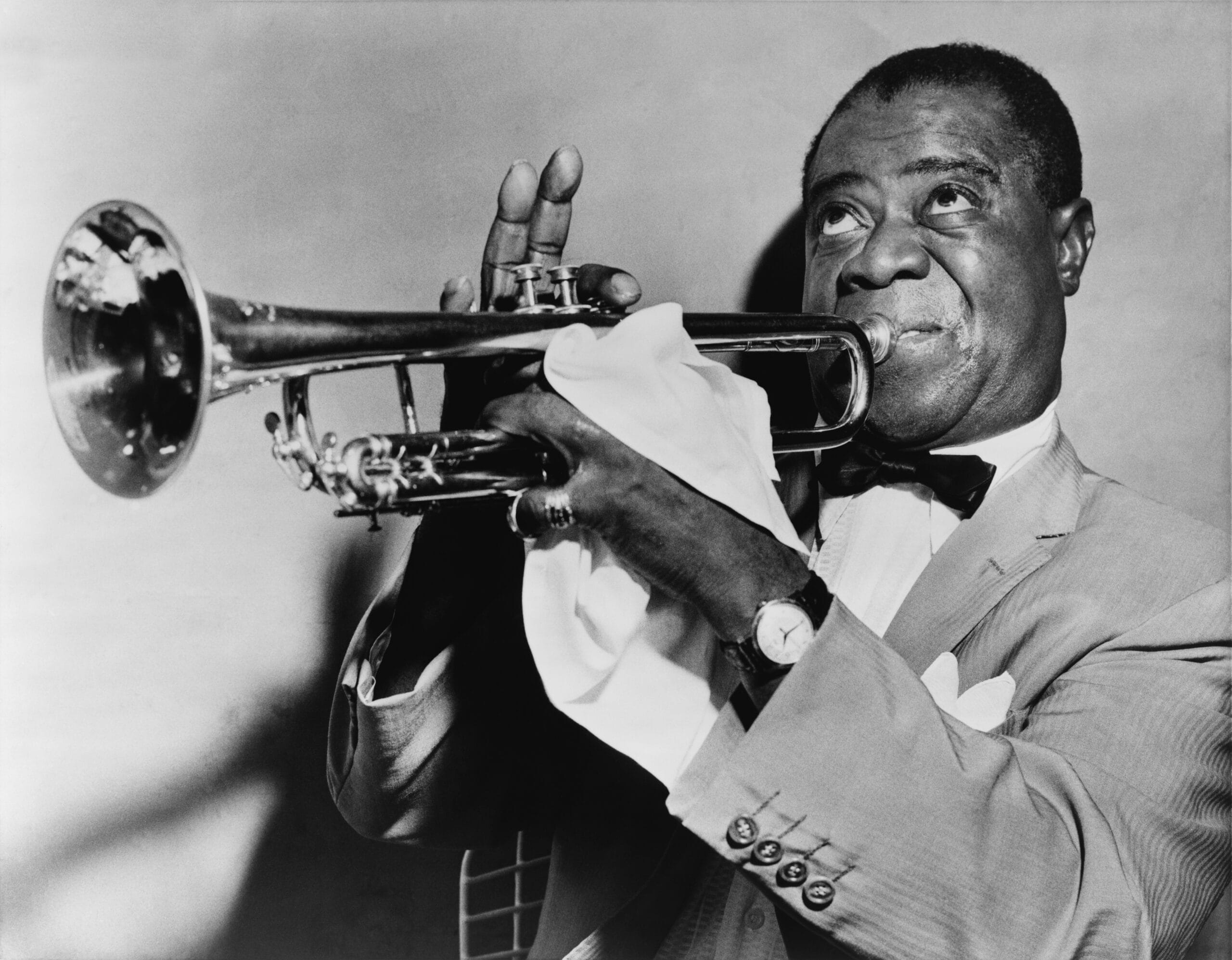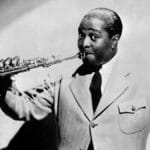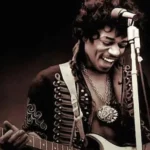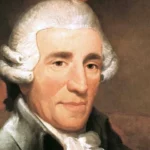Delving into the Life of the “King of Jazz”
Get ready to dive into the captivating world of Louis Armstrong, the legendary “King of Jazz”! His soulful trumpet and smoky vocals shattered racial divides and captivated listeners for generations, making him an American icon. From his humble New Orleans roots to his Hollywood stardom, Armstrong’s journey is a testament to his unwavering spirit, musical brilliance, and the profound impact he had on the world of music. Join us as we unveil the unforgettable facts that bring the legend of Louis Armstrong to life, revealing the man behind the trumpet and the magic he created.
A Melody Born in Struggle
Though we often associate Louis Armstrong with joy and exuberance, his life began in the roughest part of New Orleans on August 4, 1901 (though some sources suggest 1900). Growing up in poverty, young Louis had to fend for himself, taking odd jobs to help his family.
Imagine young Louis, barely a teenager, landing in the Colored Waif’s Home for Boys at age 11 after a firearms incident. While certainly not a fancy music school, it was here that fate intervened. The cornet, a gift from the home, became his voice, a way to express the emotions bubbling inside him. He even proclaimed, “I do believe that my whole success goes back to that time I was arrested…because then I had to quit running around and began to learn something. Most of all, I began to learn music.”
From New Orleans to the World Stage
Chicago in the roaring twenties was the place to be for aspiring jazz musicians, and that’s where Louis headed. He joined forces with the legendary Joe “King” Oliver’s Creole Jazz Band, honing his skills and making a name for himself.
His wife, Lil Hardin, a talented pianist in her own right, saw his true potential and encouraged Louis to step out from the band and let his own voice shine. And shine he did!
Forming his own groups, the Hot Five and Hot Seven, Louis revolutionized jazz. His solos weren’t just notes on a page; they were stories told through his trumpet, full of emotion and improvisation. He added another layer of magic to his music with his unique scat singing, using his voice like an instrument.
More Than Music: A Voice for Change
Louis Armstrong’s impact went far beyond the stage. Becoming the first Black radio host in America was a monumental achievement, breaking down barriers and paving the way for others.
While he faced criticism for not being politically outspoken during the Civil Rights Movement, his music became a soundtrack for change. He challenged segregation by refusing to perform in venues that wouldn’t admit Black and white audiences together.
The world embraced him. His international tours weren’t just concerts; they were cultural exchanges, sharing the spirit of jazz and breaking down prejudices.
A Legacy That Endures
Even after his passing in 1971, Louis Armstrong’s music continued to touch hearts. “What a Wonderful World,” released a few years before his death, became a global anthem of hope and optimism.
But Louis Armstrong’s story is not a simple melody; it’s a complex jazz composition full of high notes and low notes. The way he navigated the complexities of race relations during his time continues to be debated. His later music, some argue, moved away from the raw innovation of his early career, perhaps a reflection of the changing times.
What remains undeniable is this: Louis Armstrong’s influence on music is immeasurable. From jazz to pop to hip-hop, his echoes can be heard in the work of countless artists who follow in his footsteps. His story reminds us that music has the power to transcend boundaries, uplift spirits, and speak to the very soul of humanity.
Why Was Louis Armstrong So Important?
We’ve seen how Louis Armstrong made groundbreaking music, but what made him so important to the world of music? To really understand, we need to look at the big picture – his life, his career, everything.
Armstrong’s talent wasn’t just luck; the man was a musical genius. He took jazz and flipped the script, bringing in those amazing solo improvisations that blew everyone’s minds. Picture this: before him, jazz was all about everyone jamming together. Then comes Armstrong, blasting out these incredible trumpet solos that basically said, “Hey, instruments can be stars too!” It totally changed the game.
And then there was his voice. It wasn’t just what he sang, but how he sang it. That voice, full of life and energy, it just grabbed you and wouldn’t let go. It’s no wonder he became a global icon – people all over the world fell in love with his music.
But Armstrong’s impact went way beyond the music. He was a cultural force to be reckoned with. As one of the first Black musicians to gain massive popularity with both white and international audiences, he was breaking down walls left and right. He showed the world that music could transcend race, that talent and charisma could challenge even the most deeply ingrained prejudices. He became a symbol of hope and progress during a time of intense racial segregation and discrimination.
Think about it: Armstrong wasn’t just making music; he was making history.
Here’s a quick summary of why he was such a big deal:
- Revolutionized Jazz: He didn’t just play jazz – he reinvented it with his incredible trumpet solos and scat singing. It was like he was saying, “Hey, let’s focus on individual talent and expression!”
- Broke Down Racial Barriers: As one of the first Black musicians to achieve widespread fame, he challenged racial barriers and paved the way for other Black artists to succeed.
- Captivated the World: His unique style and charisma made him a global superstar. People everywhere connected with his music – it transcended cultural boundaries.
- Lasting Influence: His music didn’t just fade away – it continued to inspire generations of musicians. You can hear his influence in various genres even today.
Louis Armstrong wasn’t just a musician; he was a pioneer, an icon, and a symbol of a changing world. His music still resonates with people today, a testament to the power of talent, innovation, and a whole lot of heart.
Where Did Louis Armstrong Grow Up?
Life wasn’t easy for young Louis Armstrong. He was born in one of New Orleans’ toughest neighborhoods, a place they called “The Battlefield,” and believe me, it lived up to its name. Poverty was a fact of life, but even amidst the struggles, music found a way in. It was like breathing for those folks, a natural part of their existence. Louis, he was no different. This kid, he had soul pouring out of him. He’d be singing on street corners, trying to scrape together a few pennies, belting out tunes in those rowdy honky-tonks. Every note he played, every word he sang, it was all adding to his unique style.
Now, picture this: Young Louis, abandoned by his father and raised by his mother and grandmother, gets himself into a spot of trouble, a little incident involving a pistol. This lands him in the Colored Waifs’ Home for Boys back in 1913. You might think, “Oh, poor kid,” and it wasn’t a picnic, but sometimes fate has a funny way of working things out. This place, unexpectedly, became his musical cradle. Professor Peter Davis took young Louis under his wing. This wasn’t street corner stuff anymore; this was proper musical training. The cornet and the bugle, those became his weapons of choice, and boy, could he make ’em sing! He became the star of the Waif’s Home brass band, and everyone could see, this kid, he was going places.
But it wasn’t just raw talent that got him there; it was the kindness of strangers, folks who saw something special in that scrawny kid with a trumpet. The Karnofsky family, Lithuanian-Jews who’d made New Orleans their home, took Louis in like one of their own. Food on the table, odd jobs to give him a sense of purpose, and when he needed money for his first cornet, well, they were there for him. “The Karnofskys treated him as though he were their own child, often giving him food and even loaning him money to buy his first instrument, a $5 cornet,” one source reveals. Their belief in him, their love, it nourished his soul as much as music did. It was this foundation of support that helped launch one of the greatest musical legends the world has ever known.
How Old Was Louis Armstrong When He Died?
That’s actually a trick question! Louis Armstrong was a man, and a very talented one at that. He was a famous trumpet player and singer, known for his incredible voice and amazing skills on the trumpet. Sadly, he passed away on July 6, 1971, in New York City. He was 69 years old, just a little shy of his 70th birthday.
While heart attacks were unfortunately more common back then, it’s still a reminder that even legends like “Satchmo” – that’s his nickname – aren’t around forever.
Want to learn more about other fascinating figures? Check out these insightful articles:
- Learn fascinating tidbits about French philosopher, writer, and playwright Jean-Paul Sartre in mind blowing facts about jean paul sartre.
- Expand your knowledge about United States federal judge Aileen Cannon through this insightful article: facts about aileen cannon.
- Immerse yourself in the captivating life of Russian mixed martial artist Fedor Emelianenko by exploring facts about fedor emelianenko.
















